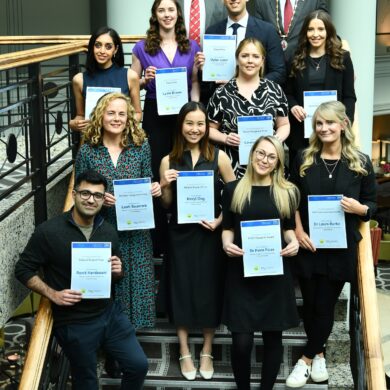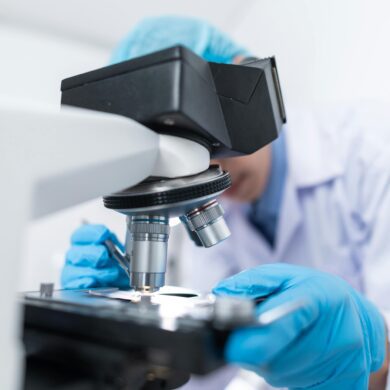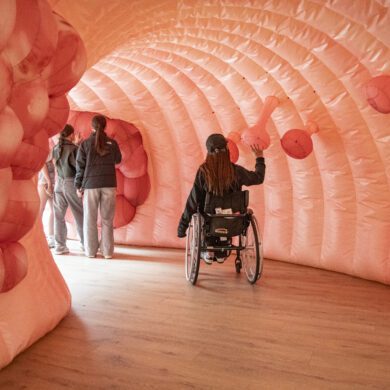Mohamed Tabib
Project: "Improving Faecal Calprotectin Testing Accuracy for Better Monitoring and Treatment of Inflammatory Bowel Disease."
F1/F2 Research Awards Winner 2025
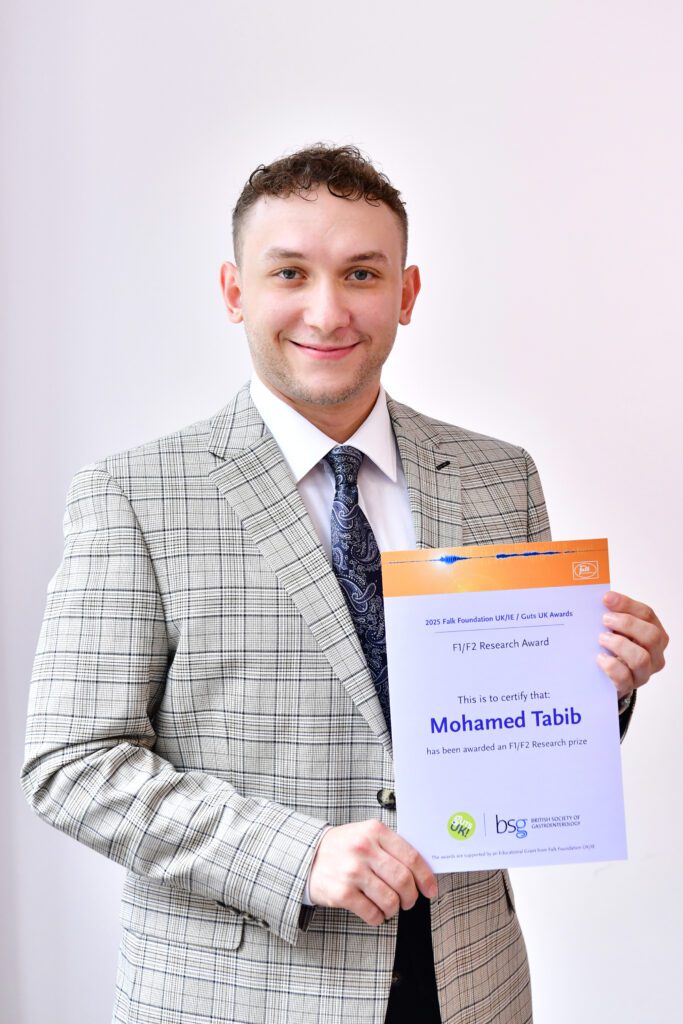
Dr Tabib explains:
“Inflammatory bowel disease (IBD) is a chronic relapsing-remitting disease characterised by intestinal inflammation and significant clinical variability. Effective disease monitoring remains a cornerstone of IBD management, enabling early identification of inflammation and timely intervention. Noninvasive biomarkers, particularly faecal calprotectin (FC), are increasingly relied upon to assess mucosal activity and guide clinical decision-making.
FC is a calcium-binding protein primarily found in neutrophils. It is released during inflammation and is thought to be highly stable in stool samples for up to seven days, making it a reliable marker for assessing gastrointestinal inflammation. FC levels typically correlate with disease activity in patients with IBD and levels above 250 μg/g indicate active inflammation, while levels below this threshold typically suggest remission.
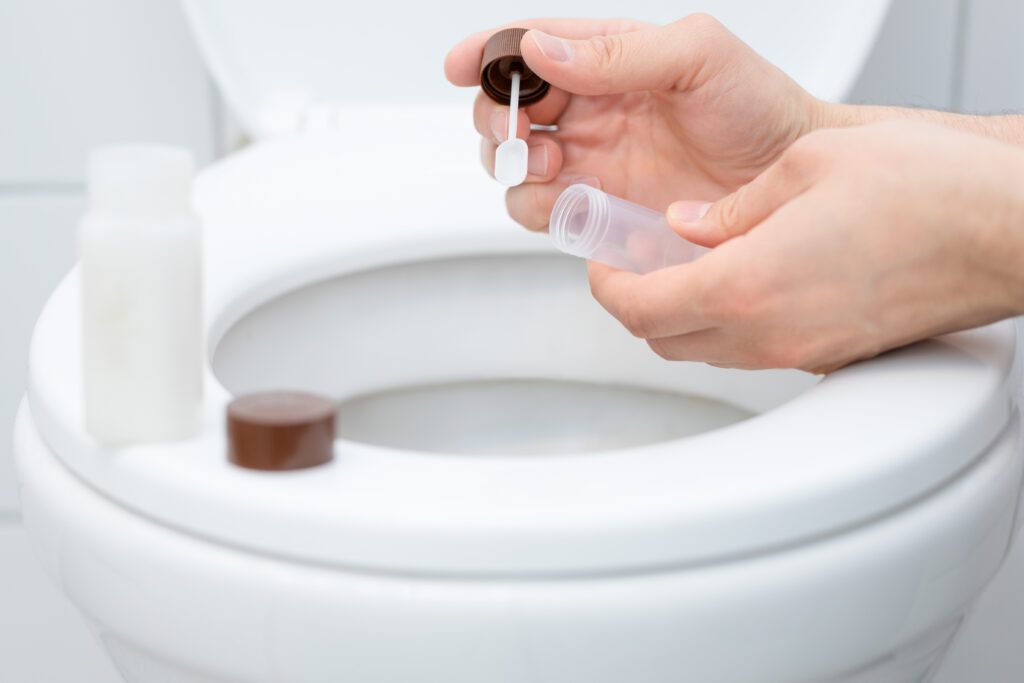
Recent changes in how these stool samples are collected and processed within our Trust have led to concerns about the accuracy of the results. Studies have shown that FC may not be as stable as previously thought, with data suggesting that FC remains stable for approximately 3-5 days, with some studies suggesting there may be a significant drop-off in levels in the first 24 to 48 hours. Nevertheless, there have been significant advancements in optimising the preanalytical stability of FC using buffer solutions, controlled storage temperatures and other related interventions.
This study, due to begin in June, will run for 12 months and aims to evaluate whether the BÜHLMANN CALEX® collection device offers superior reliability and accuracy in FC measurement compared to traditional plain stool pots. The project includes both a retrospective analysis of patient outcomes associated with historical FC data and a prospective arm involving approximately 20 IBD patients, providing paired samples via both collection methods to assess the stability of FC.
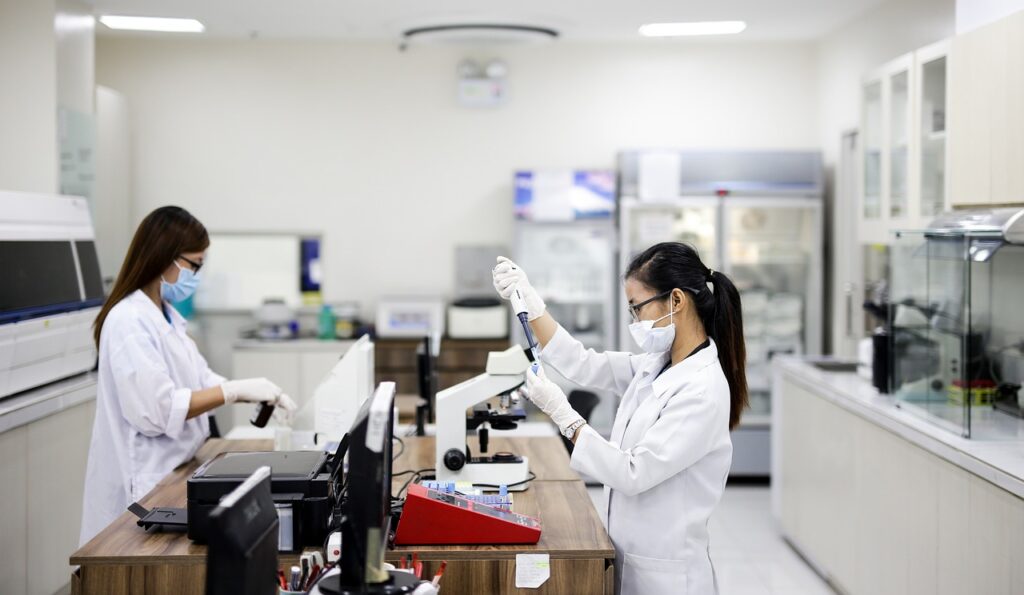
The findings from this study could enhance our ability to interpret these test results, leading to more precise monitoring of IBD. This could refine risk stratification, reduce unnecessary interventions and support more responsive, evidence-based management of IBD. Ultimately, the findings aim to inform best practices in FC testing, contributing to more consistent and clinically meaningful use of this biomarker.”
What did it feel like to win this award?

It is a true honour to receive the 2025 Dr. Falk/Guts UK F1/F2 Research Award and have the opportunity to collaborate with a prestigious charity and organisation. I would also like to thank my supervisors for their constant support, encouragement and advice that has helped me get this far. I hope this will be a fruitful step in the beginning of my academic career and will certainly serve as great motivation to pursue research opportunities in the future. I’m excited to continue developing my interest in IBD and colorectal cancer and to see where this path in research and clinical practice leads.
Read more about Dr Tabib’s project, focused on the gut, by downloading the PDF below.
